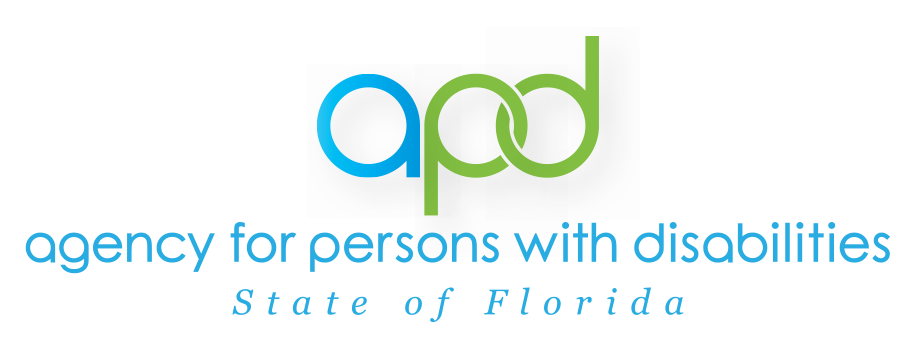Common Signs
Recognizing Signs of Abuse, Neglect, and Exploitation
Recognizing abuse, neglect, or exploitation in individuals with developmental disabilities can be difficult, as some behaviors or traits may be related to their diagnosis. This makes it essential to watch for any unexplained changes in health, behavior, or finances, which may signal potential harm.
While an individual’s response to abuse varies, research links certain physical and behavioral indicators with abusive environments. Be attentive to any sudden or gradual changes in appearance, behavior, or mood – these may be warning signs of maltreatment. By staying informed and observant, caregivers and support networks play a key role in protecting individuals with developmental disabilities from abuse, neglect, and exploitation.
Physical Signs of Abuse
- Bruises (old and new, clustered on one part of body, or on both upper arms)
- Burns
- Cuts or scars
- Marks left by a restraint
- Imprint injuries (e.g., marks shaped like fingers, thumbs, hands, belts, sticks, etc.)
- Unexplained missing teeth
- Spotty balding (from pulled hair)
- Eye injuries (black eyes or detached retinas)
- Broken bones
- Sprains
- Abrasions or scrapes
- Vaginal or rectal pain
- Bleeding from the ears, nose, or mouth
- Frequent urinary tract infections or yeast infections
- Painful urination
- Abrasions, bleeding, or bruising in the genital area
- Incontinence in someone who was previously toilet-trained
- Frequent sore throats
- Sudden onset of psychosomatic complaints (males most frequently complain of stomach aches while females most frequently report headaches)
- Sudden difficulty walking or sitting
- Dehydration
- Poor or improper hygiene
- Poor grooming (e.g., overgrown fingernails and toenails; uncut, matted, or unclean hair; unshaven facial hair, body crevices caked with dirt)
- Malnourishment/weight loss
- A smell of urine or feces on the person
- Improper sleeping, cooking, or bathing arrangements
- Infestations (e.g., fleas, lice, bedbugs, roaches, rodents, etc.)
- Poor skin condition or skin breakdown (such as rashes, bedsores, or open wounds)
- Lack of necessary adaptive aids such as glasses, hearing aids, leg braces, walkers, etc.
- Improper medication management
- Needed medical and dental care (including the administration of prescribed drugs) not provided
- Lack of adequate or appropriate supervision
Behavioral Signs of Abuse
- Changes in the way affection is shown, especially if unusual or inappropriate
- Sudden fear of being touched
- Sudden onset of nightmares
- Changes in sleep patterns (i.e., difficulty sleeping, sleeping during typical waking hours, increased sleep, etc.)
- Sudden regression to childlike behaviors (i.e., bed-wetting, thumb-sucking, etc.)
- Sudden unusual interest in or knowledge of sexual matters
- Cruelty to animals
- Sudden fear of bathing or toileting
- Sudden fear of a person or place
- Depression, withdrawal, or mood swings
- Increased stemming
- Sudden onset of outbursts of anger
Profiles of Abusive Caregivers
Caregivers who abuse, neglect, or exploit individuals with developmental disabilities either lack the ability or the willingness to provide proper care. Recognizing the underlying causes of such harmful behavior is essential to developing effective prevention strategies.
Profile of a Caregiver Unable to Provide Proper Care
Some caregivers may struggle to meet the needs of individuals with intellectual and developmental disabilities due to a lack of proper training, experience, or physical capability. Others may be dealing with personal challenges such as mental health conditions, cognitive impairments, or chronic medical issues that interfere with their ability to provide safe and effective care. Additionally, overwhelming stress, burnout, or substance abuse can impair judgment and increase the risk of neglect or unintentional harm.
Profile of a Caregiver Unwilling to Provide Proper Care
In contrast, some caregivers make a conscious choice to mistreat those in their care. These individuals may exhibit patterns of repeated abusive or neglectful behavior and often take advantage of the vulnerability of individuals with developmental disabilities. They may dehumanize the people they are responsible for, seeing them not as individuals with rights and emotions but as easy targets who are unlikely to resist or report the abuse.
Common Traits of Abusive Caregivers:
Common traits are frequently observed in individuals who engage in abusive caregiving behavior. These may include:
- Low self-esteem
- A desire to control or dominate others
- Frustration with authority, which may lead to displaced aggression toward vulnerable individuals
- A personal history of abuse or neglect during childhood
- Emotional detachment from the individual in their care, leading to the false belief that those individuals do not experience pain or distress in the same way others do
Signs of a Caregiver of Concern
Employers and supervisors should be alert to the following behaviors, which may indicate that a caregiver is not suitable to provide safe and respectful care to individuals with intellectual and developmental disabilities:
- Refuses to follow instructions or complete essential care tasks
- Displays controlling or domineering attitudes and behaviors
- Frequently arrives late, misses shifts, or is unreliable
- Appears to be under the influence of alcohol or illegal substances while working
- Mistreats or harms pets or service animals
- Uses threats, intimidating stares, or aggressive body language
- Exhibits impulsive or reckless behavior
- Uses a person’s vehicle, finances, or other personal resources without consent
- Restricts the individual’s social interactions, education, and/or employment opportunities
- Diminishes or devalues the individual’s worth, abilities, or autonomy
- Frequently changes healthcare providers without clear justification
- Speaks on behalf of the individual without invitation or necessity
- Competes with the individual for attention, resources, or recognition
- Is unwelcoming or uncooperative during visits from supervisors, case managers, investigators, Agency for Persons with Disabilities’ (APD) staff, or support staff
- Attempts or seeks to isolate the individual without a clear or appropriate reason
